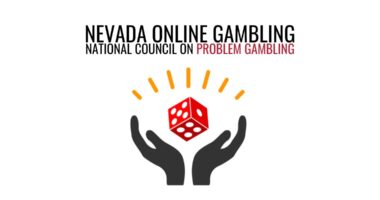
The 2022 report from The National Council on Problem Gambling (NCPG) was recently published. The report examines consumer protection regulations in states where online gambling is legal, using its Internet Responsible Gambling Standards (IRGS) as a benchmark.
The report titled “The US Online Responsible Gaming Regulations: An Evaluation Against National Council on Problem Gambling Standards” indicates that the standards for online gambling in Nevada do not meet the minimum responsibility requirements set by the NCPG.
The only authentic online gambling option in Nevada is the poker website for the World Series Of Poker (WSOP). Anyone looking to gamble online in Nevada can only use this active website.
This report from the NCPG indicates that the issue is not specifically with the WSOP website, but rather with Nevada’s online gambling regulations.
The report indicates that regulators of online gambling, also known as iGaming, in four out of seven states do not provide sufficient protection for gamblers. These states, including Nevada, Delaware, Michigan, and West Virginia, do not require operators to offer players adequate safeguards for responsible gambling.
Evaluation Against National Council on Problem Gambling Standards
The “Evaluation Against National Council on Problem Gambling Standards” by NCGP examines how seven states with online gambling comply with its minimum responsible gambling standards.
Regulators in Nevada failed to meet the minimum standard for problem gaming regulations. Only three states – Connecticut, New Jersey, and Pennsylvania – managed to meet a majority of the standards defined in the IRGS.
In 2012, the NCGP established the IRGS. These standards aim to provide guidance to all those engaged in internet gambling, encouraging them to maintain responsible gaming practices.
This topic is not unchanging. The IRGS consistently updates to mirror the present status of online betting, along with the latest trends in consumer protection and technology.
The IRGS standards comprise particular recommendations in the following areas:
- Policy
- Staff training
- Informed decision-making
- Assisting players
- Self-exclusion
- Advertising and promotion
- Game and site features
- Working with research
The organization, in the end, aims to streamline and enhance responsible gaming initiatives for state regulators. The report revealed that the previous year, Nevada’s gaming regulators did not supply players with vital safer gambling information on these topics:
- Online poker-related myths
- Online gambling-related risks
- Useful advice for staying within budget
- How to obtain personal data on responsible gambling
Moreover, Nevada is unique among states with online gaming in that it lacks a policy dedication to responsible gambling. Unlike in other states, Nevada’s online gambling employees are not annually trained on the updated standards of the IRGC.
Maintaining up-to-date responsible gaming standards for both online and live casino gambling is always crucial. The fact that Nevada only has one place to gamble online should not hinder the enforcement of these regulations.
Lack of online gambling in Nevada
In Nevada, online gambling is somewhat restricted. Contrary to other states, Nevada does not provide a comprehensive selection of online casino games such as blackjack, slot machines, poker, and others.
At present, the only online gambling option in Nevada is provided by the WSOP website. Being one of the few states with numerous locations for in-person gambling, it’s almost impossible to steer clear of gambling activities in Nevada.
In addition to mobile sports betting apps in Nevada, gambling is also available at retail outlets throughout the state.
The state boasts over 300 casinos that provide gambling services to customers. Furthermore, gambling opportunities in Nevada extend to bars, taverns, supermarkets, gas stations, and beyond.
Certain casino managers believe that this is more than enough. They frequently argue that permitting comprehensive online gambling could result in problematic gaming.
Interestingly, these companies also claim that online gambling could lead to a decrease in local revenue as residents may opt to gamble at home rather than visiting a casino. Indiana had conducted a study on this matter last year and discovered that online casinos should not eat into the revenue of physical casinos.







